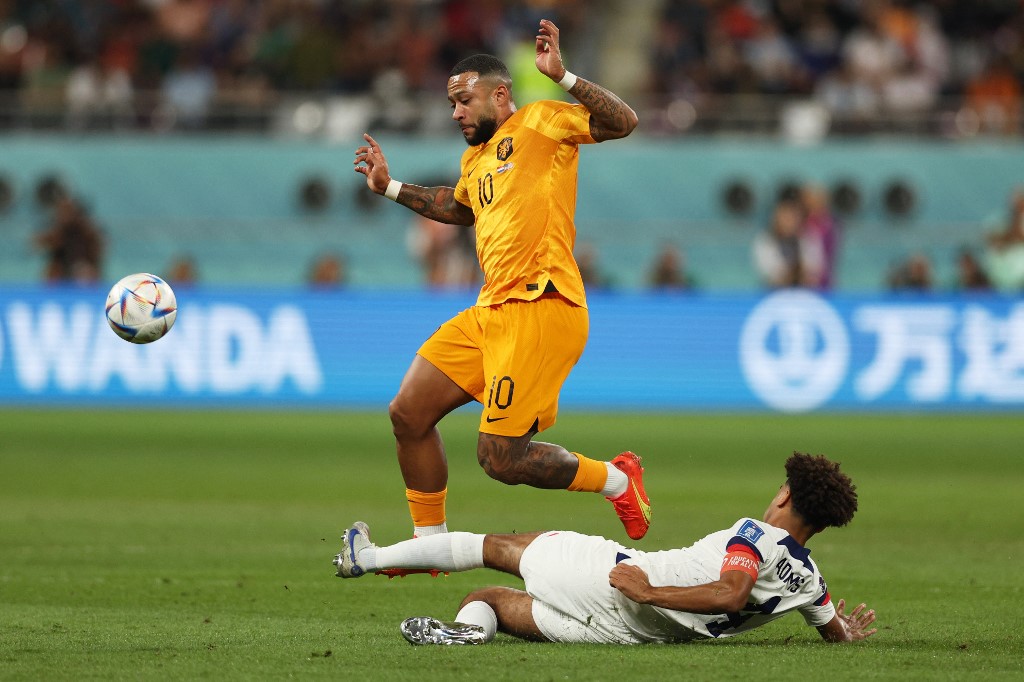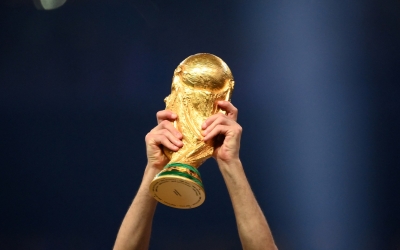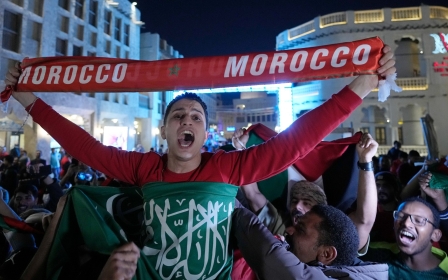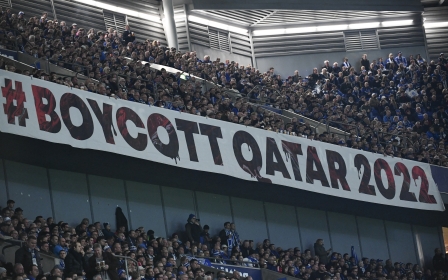Qatar World Cup: Why Americans just don't get football
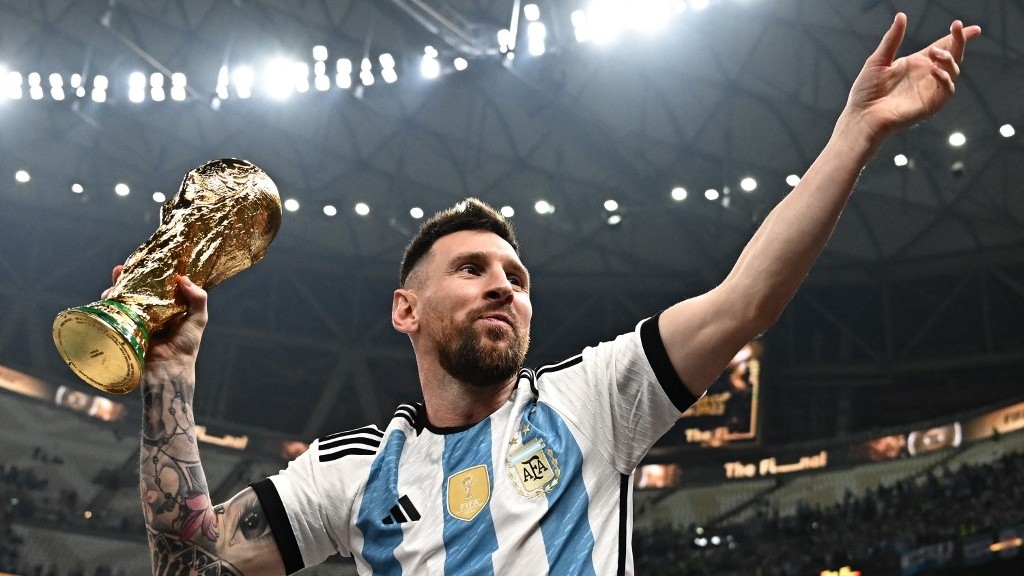
The World Cup in Qatar is over. Argentina won, and Lionel Messi donned his bisht and took his place in the pantheon of footballers who stand tall next to Pele, Diego Maradona, Zinedine Zidane, Cristiano Ronaldo, Johan Cruyff, Franz Beckenbauer, Roberto Baggio, Lev Yashin and Ferenc Puskas. If each of these names do not trigger a magic mountain of memories in you that transcend your entire life on this Earth, then you are not a footballer.
All was not hunky-dory during this World Cup, when scarcely any European or American commentators could resist letting out nasty bits of racism, Orientalism and self-righteous indignation about Qatar's human rights and labour practices - abuses of which neither Qatar nor any other country is innocent. What really bothered these unabashedly racist commentators was how a tiny Arab country could pull off such a spectacular World Cup without a hitch, capping it off with a mighty final game in which Argentina and France gave the world a taste of what this sport is all about.
None of the commentators I heard appeared to have the slightest clue about the changing strategies of various teams when they played against their opponents
Of all the anti-Qatar pieces I read, none were as irritating and outlandish as those published in the US media. A key issue they focused on was how this tournament was joyless. The New York Times declared that "Qatar Got the World Cup It Wanted" - not the World Cup that it and millions of other Arabs and Muslims justly deserved. I know of Arab academics who are severely critical of Qatar under normal circumstances, but nonetheless furious over such blatant racism.
Following the US coverage, I became convinced that Americans just don't get this game of football - which they call soccer - and have almost completely missed the drama of this global tournament. On Fox Sports, I watched the games and heard the most banal commentaries, with the sportscasters apparently believing the correct strategy was just to raise their voices and speak fast any time the ball got close to the goalkeeper.
None of the commentators I heard appeared to have the slightest clue about the changing strategies of various teams when they played against their opponents. They just did their best to butcher the names of key players and coaches, such as Walid Regragui of Morocco, or Ehsan Hajsafi of Iran, or Kalidou Koulibaly of Senegal - while failing to construct a decent sentence about any of them, or what they were doing on the field.
New MEE newsletter: Jerusalem Dispatch
Sign up to get the latest insights and analysis on Israel-Palestine, alongside Turkey Unpacked and other MEE newsletters
Commercial interruptions
I remember during the World Cup in 1978, having just arrived in Philadelphia to pursue higher education, I thought I could watch the games as usual. That was a mistake: A few minutes into play, the TV station broke for a commercial. A commercial, in the middle of a football game? It was early in June. We immediately made reservations and flew to the nearest civilised capital where we could watch the tournament in peace, without imbecilic commercial interruptions. From then on, I have always had a nagging thought that, in the US, they just don't get this game - but why?
Over the years leading to the US finally hosting the World Cup in 1994, and since then, there has been much speculation as to why this country is so mediocre in football. Some observers have said it could be because players are not allowed to use their hands, as they can in more popular sports such as baseball and American football; or because there is only one break, and no cheerleaders. There are also historical reasons and business-based explanations, while others have cited football's low scoring as a deterrent.
In Why the U.S. Men Will Never Win the World Cup, author Beau Dure argues that the country "is too fractious, too litigious, too wrapped up in other sports, and too late to the game".
There are, to be sure, multiple reasons. But here I would like to offer two more explanations as to why football faces such an uphill battle of a journey towards the American mainstream. Firstly, in its recent gestation in the US, football is a suburban phenomenon, not an inner-city sport; and secondly, the US is a military superpower always "winning" in the real battlefields against poorer nations. Football is a substitutional power game in which poorer nations have something to prove.
In the US, soccer is a suburban game for well-to-do families, not an inner-city sport played by poorer people. The term "soccer mom" refers to a relatively rich mother driving a fancy SUV with her children and their friends to a lush and expensive football field, with an endless supply of brand-new game balls.
Compare that with how we as children played football, using a single, precious ball we purchased by each contributing something like a penny. We usually kept that ball with the "treasurer" on our team. When we had possession, we would rip through any opponent who dared to come near that ball to take it from us. This psychology is absent from many of the rich kids playing football in American suburbs.
Militant imperialism
Conversely: What is the game that Americans excel at? First and foremost, it is basketball - but why? Because it is an inner-city game mostly for poor African Americans, who also have a possessive attitude towards the ball, just as we did in other poor neighbourhoods around the world. The other game they are good at is what they call "football", a deeply aggressive game that is a metaphor for the American version of militant imperialism.
The other paramount reason for football's lack of traction in the US is that this country is a political superpower, and football is one remaining game where poorer people and nations at the receiving end of American power can settle their differences in a relatively equal, peaceful and beautiful way.
For this reason, many fans prefer Latin American teams over European teams. One factor is their different ways of playing soccer, and not just the immortal meditations of Uruguayan philosopher Eduardo Galeano on a game he loved, with a prose that endeared it to the uninitiated (indeed, there is no European book comparable to his Soccer in Sun and Shadow).
Europeans play football methodically, like failed colonisers remembering their former glories. Latin American footballers, on the other hand, play like weightless ballerinas. Yes, this is a giant generalisation; but as the world mourns the passing of Pele, just watch his team beating Sweden in 1958, or Italy in 1970.
It is not accidental that warmonger Henry Kissinger was so adamant about bringing football to the US; as the chief strategist of US imperialism, he wanted the country to become imperially integral to the world. Either through ignorance of the very logic of football as a global phenomenon, or sheer arrogance that he could bend that logic to his will, he wanted the world to think of the US team as one of their own, domesticating US imperialism in the context of world culture. Of course, he miserably failed.
There is only one way the US could become a major player in a future World Cup: Just as France has relied on its former African colonies to produce magnificent footballers such as Kylian Mbappe (whose heritage is Cameroonian and Algerian) and Zidane (an Algerian Muslim), alongside scores of others, the US team should start yielding its rich suburban soccer fields to the poor Latin American children their presidents keep incarcerating at the US-Mexico border. If they start doing that now, by the next World Cup, they might be a contender.
The views expressed in this article belong to the author and do not necessarily reflect the editorial policy of Middle East Eye.
Middle East Eye delivers independent and unrivalled coverage and analysis of the Middle East, North Africa and beyond. To learn more about republishing this content and the associated fees, please fill out this form. More about MEE can be found here.



